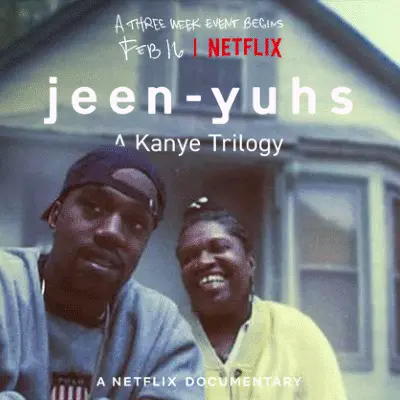Jeen-yuhs: A Kanye Trilogy works best as a story of a fraying friendship between the two men
-

"While the first two parts of Jeen-Yuhs give us deep insight into his origins, the third episode attempts to reconcile College Dropout–era Ye with the one desperately trying to pop a wheelie on the zeitgeist with his 11th album," says Elamin Abdelmahmoud of Netflix's three-part Kanye West documentary. "Jeen-Yuhs, ultimately, doesn’t deliver on this big promise — but in the process of trying, it lands somewhere more compelling. As his relationship to Coodie’s camera changes, we watch Ye transform from a performer obsessed with self-mythology into one who is so deep in his own self-narrative that he may have forgotten he was building a myth in the first place." Abdelmahmoud adds: "In Coodie’s footage, he is free to be himself, to inhabit a range of postures. He is fallible and frustrated, vulnerable and victorious, cunning and confused. While this is thrilling to watch, it’s ultimately to the detriment of the documentary. Jeen-Yuhs is frequently uninterested in taking a perspective, much less passing a judgment on its mercurial subject. But in abandoning the project of explaining Ye’s contentious legacy, it transforms into something else: a lament for a severed tie. Coodie seems to know that he’s too close to the subject, which is perhaps why the documentary works best as a story of a fraying friendship between the two men." ALSO: Jeen-Yuhs missed a chance to tell a more honest story about Kanye West.
TOPICS: jeen-yuhs: A Kanye Trilogy, Netflix, Kanye West, Documentaries
More jeen-yuhs: A Kanye Trilogy on Primetimer:
